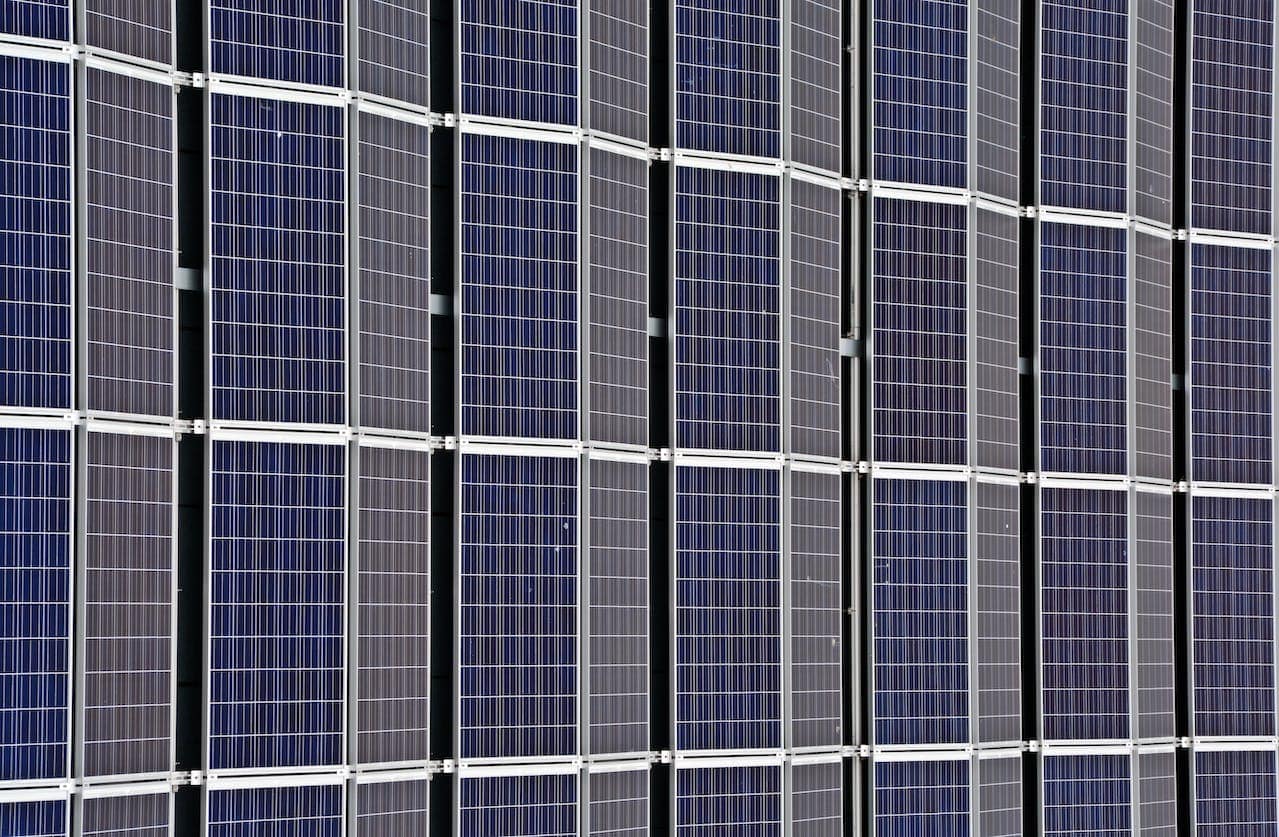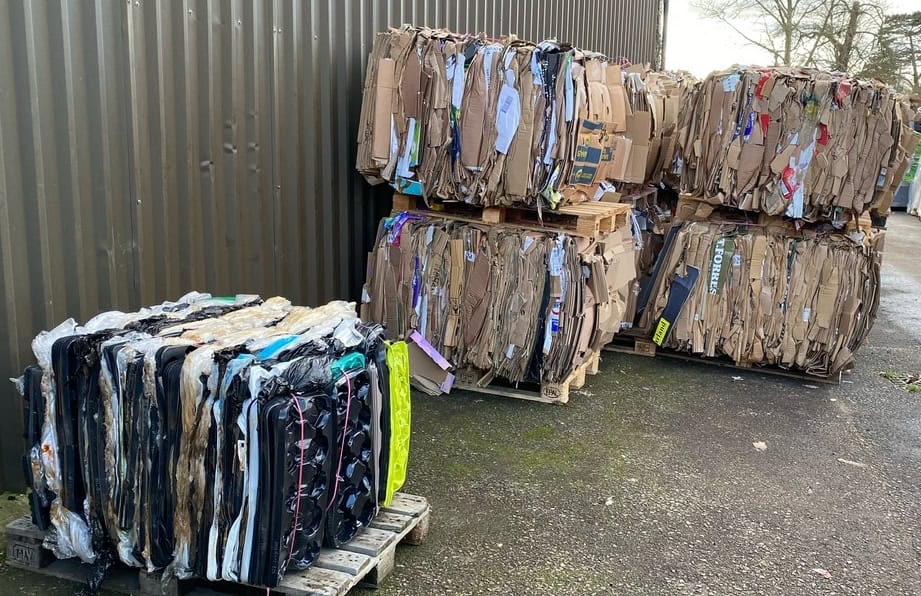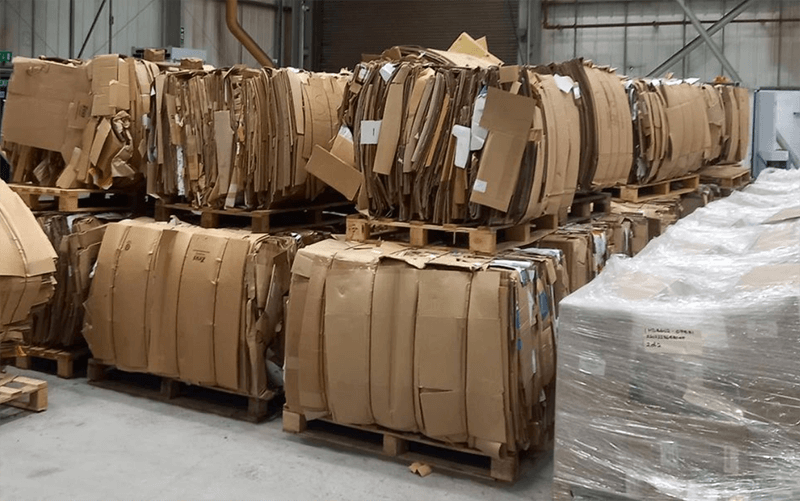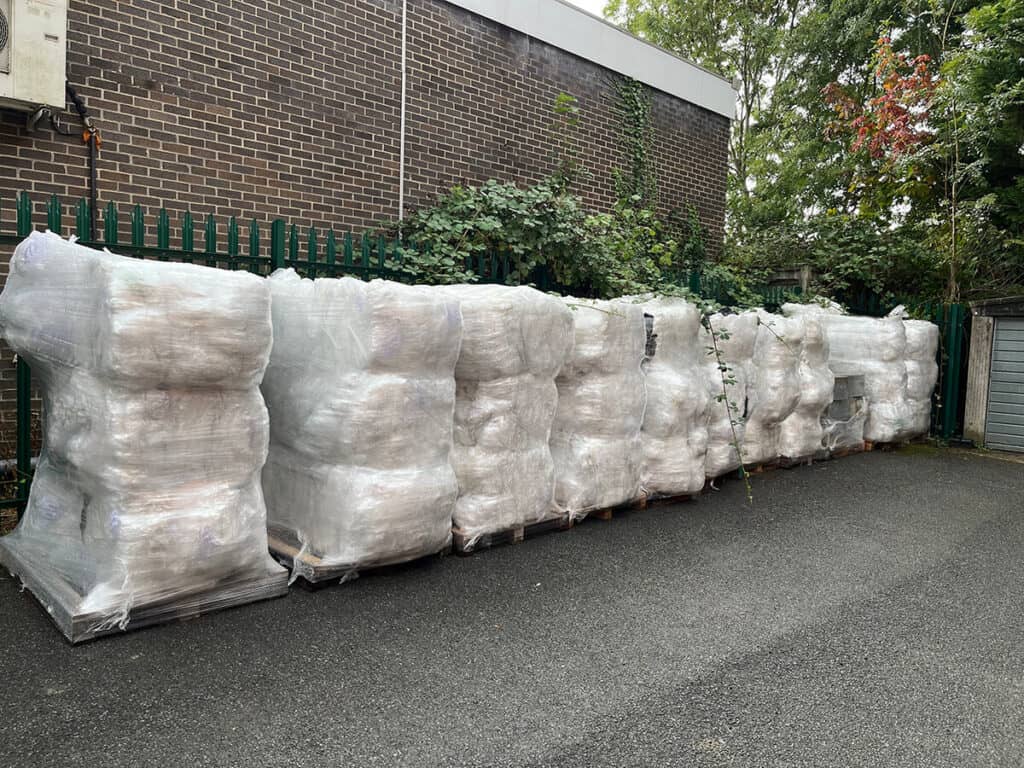How Long Do Solar Panels Last?
The standard lifespan for most solar panels is 25 to 30 years. However, this is dependent on specific circumstances and environments. Manufacturers of solar panels will often provide warranties for 25+ years.
Solar energy is an increasingly popular choice for businesses across the UK, offering numerous benefits including reduced energy bills and a smaller carbon footprint.
In this comprehensive guide, we will explore how they work, what factors affect their lifespan, and how to sustainably dispose of solar panels when their time is up. We’ll also touch on the importance of solar panel recycling services to ensure a sustainable approach to renewable energy.
How Do Solar Panels Work?
To understand the lifespan of solar panels, it’s essential to grasp how they work. Solar panels, also known as photovoltaic (PV) panels, capture sunlight and convert it into electricity. This process is made possible by the photovoltaic effect, where semiconductor materials within the panels absorb photons from sunlight, generating an electrical current.
Solar panels consist of numerous solar cells interconnected within a module. These cells are usually made of silicon, and when exposed to sunlight, they release electrons, creating an electric current. This current is then harnessed and converted into usable electricity for your business.
What Affects a Solar Panel Lifespan?
Several factors can influence the lifespan of your solar panels. Understanding these elements is crucial for making informed decisions about your solar energy system. Here are some key factors that come into play:
Type of Solar Panel: The type of solar panel you choose can significantly impact its longevity. Monocrystalline and polycrystalline panels tend to have longer lifespans, typically around 25-30 years, while thin-film panels may have a slightly shorter lifespan.
Solar Panel Degradation: Solar panel degradation refers to the gradual decline in efficiency over time. Solar panels typically experience an annual degradation rate of 0.5% to 0.8%, which means they can still produce around 90% of their original output after 20-25 years.
Quality of Installation: Proper installation by experienced solar panel installers is crucial. Poorly installed panels can lead to premature wear and tear, reducing their lifespan.
Cleaning Your Solar Panels: Regular maintenance, including cleaning your solar panels, can help extend their life. Dust, dirt, and debris can accumulate on the panels, hindering their efficiency. Keeping them clean ensures optimal performance.
Environmental Factors: The UK’s climate can also influence the lifespan of your solar panels. Excessive rain, snow, or hail can cause physical damage, while extreme temperatures and humidity levels may affect the panels’ performance.
Inverter Lifespan: Inverters are essential components in a solar energy system that convert DC electricity generated by the panels into AC electricity for use in your business. The lifespan of inverters typically ranges from 10 to 15 years, so replacing them during the system’s lifetime is essential.
How Can I Dispose of Solar Panels?
As solar panels reach the end of their lifespan, it’s important to dispose of or repurpose solar panels responsibly to minimise environmental impact.
The most environmentally friendly way to dispose of solar panels is through recycling. Solar panel recycling services, like the one we offer, can collect bulk loads of solar panels from across the UK. Recycling allows for the recovery of valuable materials like silicon, aluminium, and glass, reducing the need for new resources.
When it’s time to replace or dispose of your unwanted solar panels, contact our team to ensure a safe and eco-friendly disposal service. Our professional business can collect and recycle large volumes of solar panels, enabling your business to clear waste away quickly and boost recycling rates for your organisation.








